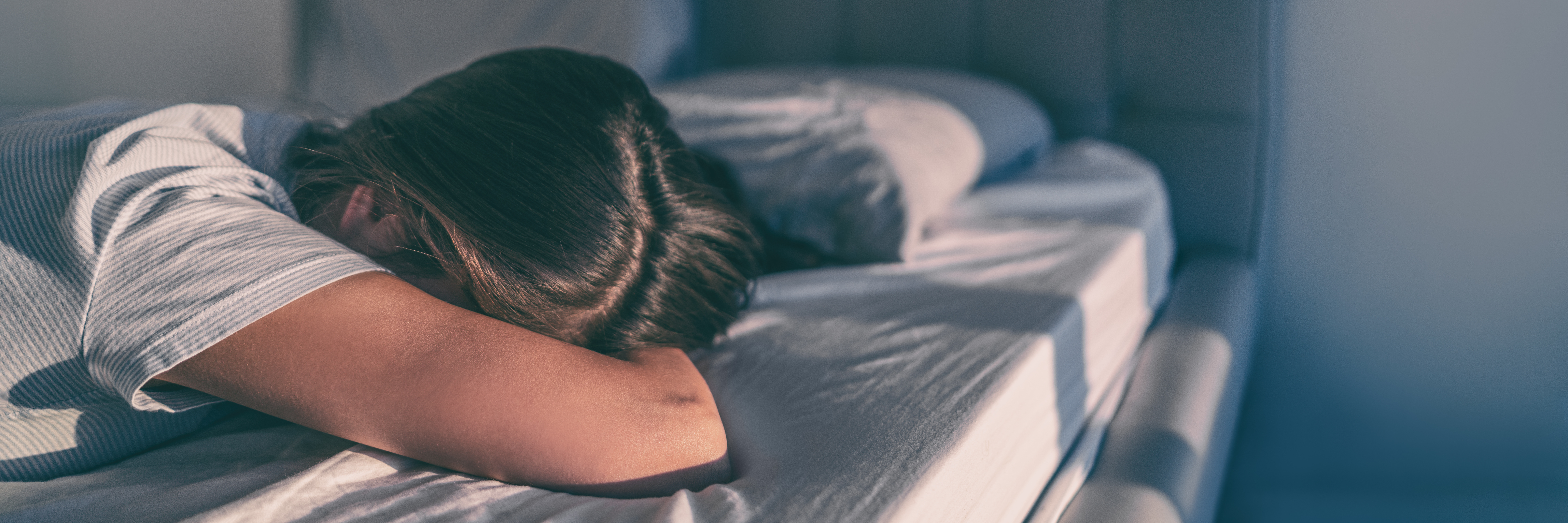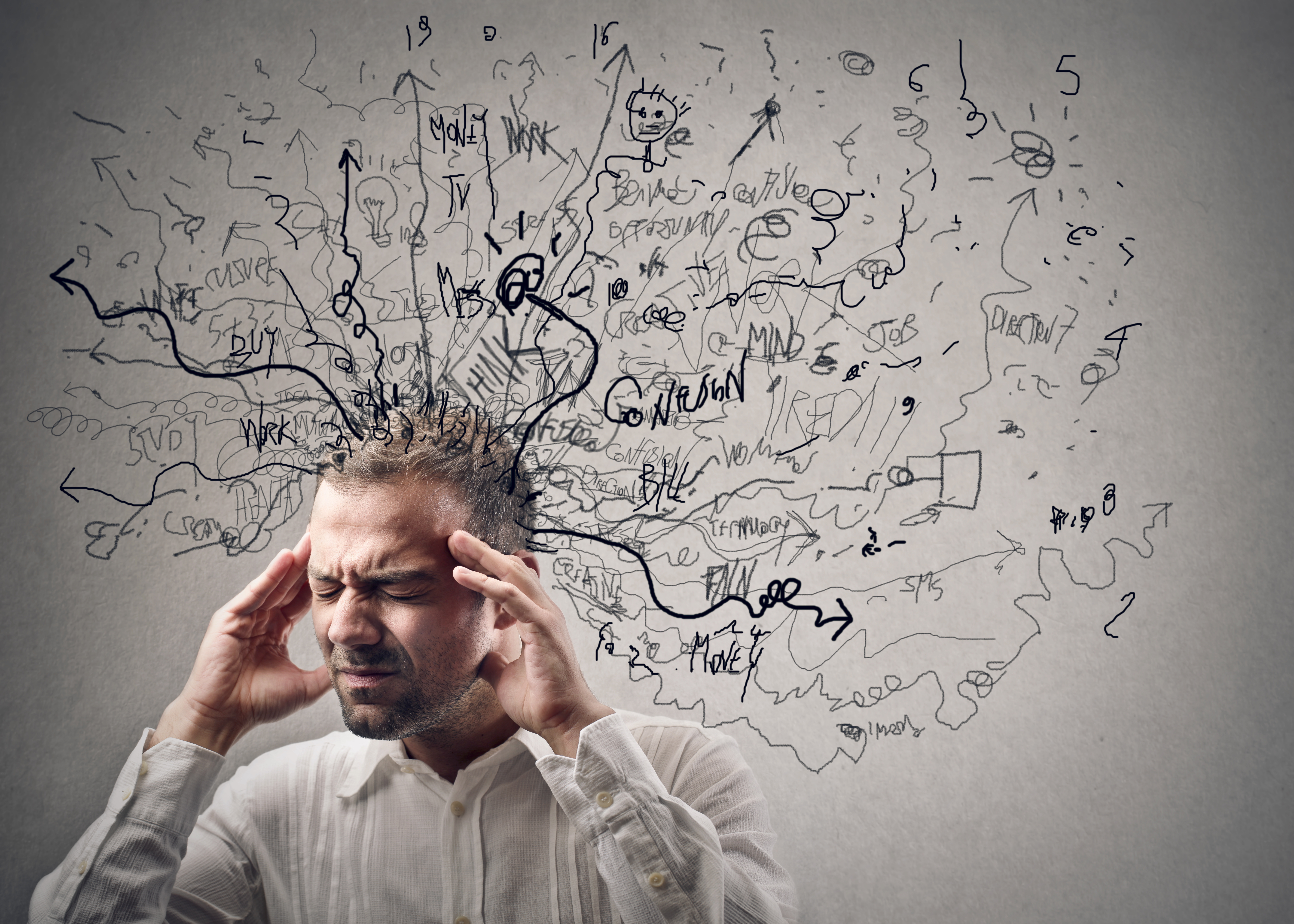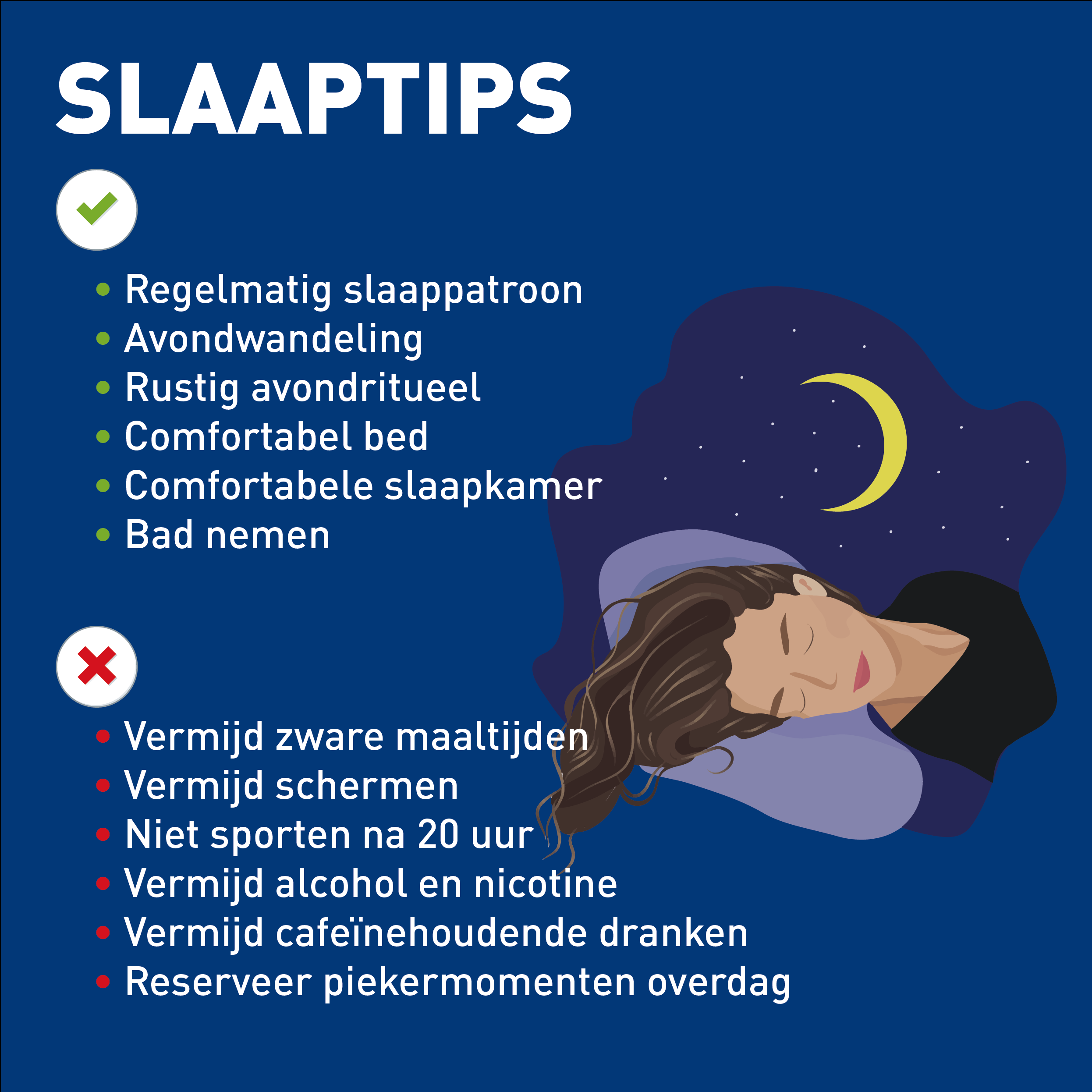Neurological sleep disorders
Symptoms and causes
Symptoms and causesSleep disorders are quite common and are often underestimated as a health problem.
Sleep deprivation and poor sleep quality, if prolonged, can lead to difficulties in functioning properly during the day:
- memory problems
- concentration problems
- mood problems
- cardiovascular diseases
- obesity

What sleep disorders are there?
What sleep disorders are there?Breathing-related sleep disorders
Pulmonologists treat sleep apnoea and snoring at the sleep centre.
Sleeplessness or insomnia

Up to 10% of the adult population suffers from sleeplessness or insomnia
Everyone has trouble sleeping at times. This can manifest itself as not being able to fall asleep properly, not being able to stay asleep or a combination of both.
The main causes of insomnia are stress and fretting. We speak of chronic insomnia when the problem occurs more than three nights a week and persists for more than threemonths.
10% of adults suffer from this sleep disorder. Treatment is best given by cognitive behavioural therapy or sleep training that we offer and is preferred over sleep medication.
Abnormal behaviour while sleeping, or parasomnia
This group includes sleepwalkers and sleep terrors (waking up at night in a panic). They frequently present in children and usually do not need any specific treatment.
In adults, this abnormal behaviour may present while dreaming (REM sleep disorder). Due to the absence of the normal paralysis of muscles during dreaming, patients start to perform their dreams. Laughing, talking, shouting, hitting, kicking and so on. If such symptoms are present, a neurological exam is indicated and treatment with medication can be useful.
Restless legs and periodic leg movements while sleeping
Patients with restless legs have uncomfortable sensations at rest in their extremities, especially the legs and feet. That feeling can only be relieved by moving the extremities. This creates motor restlessness that can prevent sleep onset. This condition is common and is often hereditary. Iron deficiency is an important risk factor. Some medication can also aggravate these symptoms.
Some patients’ extremities move in a repetitive, jerky way whilst they are asleep, often without them realising it. This also disrupt sleep and often causes leg pain when they get up. The can also lead to fatigue during the day. A sleep study can be useful in order to examine the severity of the condition. Treatment usually consists of good sleep hygiene and, if necessary, starting or adjusting medication.
Narcolepsy
This is a less common condition where patients become uncontrollably sleepy during the day. In addition, night sleep is disrupted by extremely vivid dreams and sleep paralysis, for example. Patients also often show muscle weakness during sudden emotions (cataplexy). For symptoms such as these, a sleep study in the sleep laboratory is definitely indicated. Medication can relieve symptoms for this condition too.
Unregulated internal clock
This problem presents itself when there is insomnia or disturbed sleep due to shift work or jet lag, for example.
Sleep tips
Sleep tipsGood sleep hygiene can help someone sleep better in many cases. See below for a few tips (read more under the image).

- Maintain a regular sleep schedule, with the same times for going to bed and for getting up.
- Keep the bedroom comfortable: dark enough, quiet, good temperature (18°C is ideal), and good ventilation.
- Avoid caffeinateddrinks (coffee, tea, cola) from the afternoon onwards.
- Avoid alcoholicdrinks and nicotine before bedtime.
- Avoid heavy meals in the evening, but do not go to bed hungry.
- Adopt a calm evening ritual: read, take a bath, go for a walk.
- Avoid screens in the last hour before bed: especially the computer, tablet and smartphone.
- Do not exercise or play sport after 8pm.
- Avoid over exertion during the day, take time to relax during the day.
- Learn to relax with breathing and relaxation exercises.
- Avoid napping during the day: only a short, 20-minute power nap right after noon is allowed, if nothing else is possible.
- Get up out of bed if you cannot sleep at night: do not keep tossing and turning, but do something relaxing in another room. Only go back to bed once you feel sleep again.
- Turn your alarm clock around, so you cannot see it when you wake up.
- Set aside a worry time during the day.
- Do not let your daytime activities rest too much on your sleep problem.
- Activate your biological clock in the morning with (sun)light and physical movement (e.g. a morning walk).
Treatment centres and specialisations
Treatment centres and specialisations
Latest publication date: 02/08/2024
Supervising author: Dr. Aers Isabelle
Something wrong or unclear on this page? Report it.
Supervising author: Dr. Aers Isabelle





